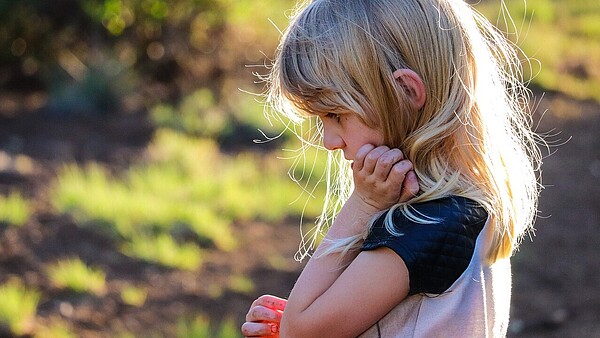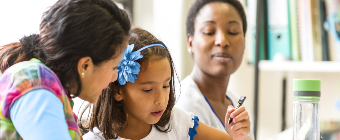One in five children under the age of 15 in Germany is considered at risk of poverty. That's 2.1 million girls and boys growing up below the poverty line in our prosperous country. Their families have to get by on less than 60 percent of the average net income, which usually results in a host of social problems, low educational opportunities and social exclusion for the children and young people. "It is a scandal for a rich country like Germany that one in five children still grows up in poverty," says Maria Loheide from the Social Policy Board of Diakonie Germany. The Corona pandemic has made the situation even worse for many children and young people, especially those from low-income families. In their joint declaration "Four years to eliminate child poverty for good!", the "Ratschlag Kinderarmut" alliance, which consists of 61 associations, trade unions, civil society organizations and individuals, therefore calls on politicians to take concrete countermeasures in the coming legislative period.
The alliance drew attention to the dimensions of child poverty and possible solutions for four weeks on social media. These include a fundamental reform of services for children, young people and their families, their comprehensive participation and the securing of a social infrastructure. Likewise, children and adolescents need intensive accompaniment back into their daycare and school lives, as well as psycho-social support to cope with the effects of the pandemic. "Savings to balance the budget must not be made at the expense of children," Maria Loheide appeals to politicians.
The campaign, in which the IB also participated as a guest member of the National Poverty Conference, has met with a broad response in social media. "As a free provider of youth, social and educational work, it is our task to support children, to ensure them equal educational and developmental opportunities and their right to self-determination," explains IB board chairman and IB delegate to the National Poverty Conference Thiemo Fojkar. For him, the great support that the fight against poverty among children and young people enjoys among the population and across party lines is a clear mandate to politicians: "The promised measures in the election programs must now finally be followed by action," Fojkar demands. The current coalition negotiations between the parties are therefore being followed with excitement in the IB and by the alliance partners. "We hope and expect," says Thiemo Fojkar, "that the necessary measures against child poverty will be anchored in the coalition agreement - and then implemented promptly."
Fighting Child Poverty in Germany




